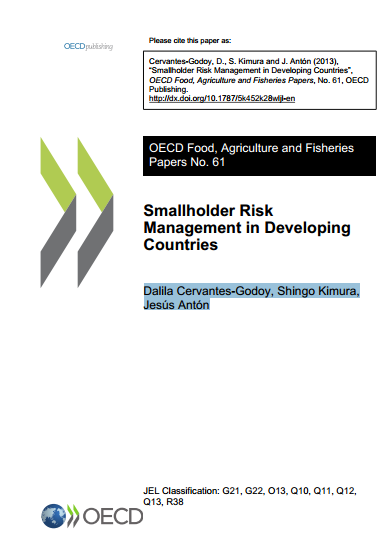Smallholder Risk Management in Developing Countries

This paper addresses various aspects of risk and risk management for smallholders in developing countries, and presents a quantitative assessment of farm-level risks and risk management strategies in three emerging economies: Brazil, China and Viet Nam. The analysis covers production, income, and poverty risks. Institutional and political settings in developing countries are frequently less developed and this contributes to a greater incidence of market imperfections in key areas such as credit and insurance, and which in turn lowers farmers’ access to risk management tools and strategies. The result is a widespread reliance on informal mechanisms and community strategies. The effects of risk and responses to risk are also different in developing countries, with smallholders often forced to rely on strategies that perpetuate poverty. When risk is an important consideration in a farm household’s decision on sector transition, insurance or safety-net mechanisms could assist these households to make that transition. The analysis of two regions in Viet Nam shows that those households able to successfully transit to the non-farm sector continued to maintain small plots of land for self-consumption, suggesting that agriculture remains a kind of safety net.